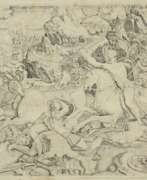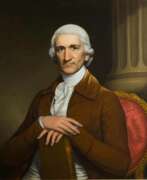Editors 18th century
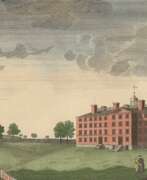

Paul Allen is an American editor, historian, and poet.
He attended Brown University and later moved to Philadelphia, where he was editor of The Port Folio, The Gazette of the United States, and The Federal Republican. Success came to Allen in Baltimore, where he served as editor until his death at the Baltimore Morning Chronicle newspaper. Paul Allen also joined the Delphic Club, and his epic poem Noah (1821) was a success.
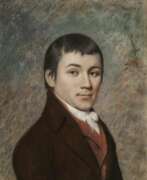

Charles Brockden Brown was an American writer, historian, and editor.
Brown took up literary endeavors early in life. In 1798, his first mystical and psychological novel, Wieland, was published. Brown also wrote the novels Ormond (1799), Edgar Huntley (1799), and Arthur Merwin (1799-1800).
Brown's works interweave fiction, history, fantasy, psychology, and liberal politics. Brown is considered the father of the American novel. His American-style Gothic novels pioneered and paved the way for two of the greatest early American writers, Edgar Allan Poe and Nathaniel Hawthorne.
Charles Brown also wrote a great deal of journalism on political, educational, and historical topics.
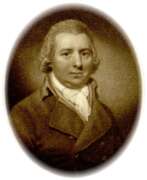

William Curtis was a British botanist and entomologist, editor of the oldest botanical publication in Great Britain.
Curtis became interested in natural history in his youth, and at the age of 25 had already published "Instructions for the Collection and Preservation of Insects", particularly butterflies. In 1779 he founded his own London botanical garden at Lambeth and published Flora Londinensis (1777-1798), a 6-volume work on urban nature.
In 1787 Curtis began publishing the later popular Botanical Magazine, which also featured hand-colored plates by artists. This magazine has changed its name several times over time, but is still continued by the Royal Botanic Gardens, Kew, as a publication for those interested in horticulture, ecology or botanical illustration. Interestingly, the magazine was entirely hand-colored until 1948.
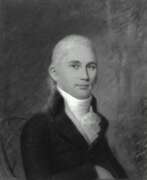

Joseph Dennie was an American writer, journalist, and major literary figure of the early 19th century.
Dennie graduated from Harvard College, became a lawyer, but became active in writing. In 1801, he founded a periodical called The Port Folio, which became the most prominent literary weekly of its time in America. It was also the first important political and literary journal in the United States.
As founder of the Tuesday Club, Dennie was the center of Philadelphia's aristocratic literary circle in the early 19th century and for a time was the leading literary critic in the country. He ridiculed the simplistic and crude nature of Native Americans and opposed democratic innovations. He also encouraged talented young writers.
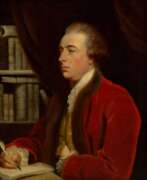

John Hawkesworth was a British writer, playwright and book editor.
In collaboration with Samuel Johnson, Hawkesworth founded the periodical The Adventurer. He wrote poems and articles for this publication and for the Gentleman's Magazine, and edited the works of Swift (1754-1755). Hawksworth adapted several literary works for the theater and also composed various original dramatic works himself.
John Hawksworth was commissioned by the British Admiralty to compile An Account of Voyages made in the Southern Hemisphere (1773), devoted mainly to the exploratory voyages of Captain James Cook.
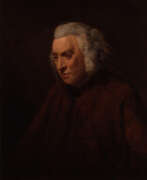

Samuel Johnson was an English writer who made lasting contributions as a poet, playwright, essayist, moralist, critic, biographer, editor and lexicographer. He was a devout Anglican, and a committed Tory. The Oxford Dictionary of National Biography calls him «arguably the most distinguished man of letters in English history». James Boswell's Life of Samuel Johnson was selected by Johnson biographer Walter Jackson Bate as «the most famous single work of biographical art in the whole of literature».
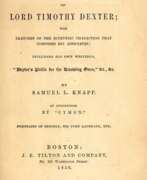

Samuel Lorenzo Knapp is an American author and lawyer and politician.
Knapp graduated from Dartmouth College and eventually became a prominent lawyer, holding a Juris Doctor degree. He was a representative in the Massachusetts legislature from 1812 to 1816, and in 1814 joined the American Antiquarian Society.
In 1824 Knapp became editor of the Boston Gazette and also kept the Boston Monthly Journal. In 1826 he founded the National Republican Party, which collapsed two years later, and returned to practicing law in New York City. Knapp published various biographical studies as well as many public discourses on politics and society.
In 1818 his fiction Ali Bey (Excerpts from a Journal of Travels in North America, consisting of descriptions of Boston and its environs) was published. It is a sort of diary of a fictional Ottoman spy who travels in America disguised as a Frenchman.
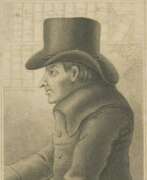

Joseph Ritson was a British antiquarian, critic, writer and editor.
He had a law degree, but preferred to study literary works. Ritson scrupulously searched for factual and other errors in authors to then publish them in his critical materials.
However, Joseph Ritson became famous as an editor of collections of ballads about Robin Hood and old folk literature. In their design they far surpassed anything that had previously appeared in the literary world, distinguished by authorial erudition and accuracy. Ritson also published collections of children's poems.
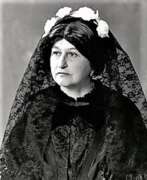

Anne Royall, née Newport, was an American writer, newspaper editor and traveler, one of the first women journalists in the United States.
After the death of her husband William Royall in 1813, Anne was left destitute, but she did not despair and completely changed her life. She was about 50 years old when she set out to travel the country and describe what she saw. She visited Baltimore, Philadelphia, New York City, Albany, Springfield, Hartford, Worcester, Boston, and New Haven. In each city, she asked respected citizens for interviews and subscriptions to her future books. She made detailed notes on each town's population, industry, physical description, local transportation, regional dialects, fashions, and the character of its inhabitants.
In all, Anne Royall wrote ten volumes of travel books. She was 57 years old when she published under a pseudonym her first book, The Traveler: Sketches of History, Life, and Manners in the United States (1826), which provides a unique look at American life in the early nineteenth century. His first novel, The Tennessean, was published in 1827, followed by several others.
At the age of 62, in her home in Washington, D.C., Royall began publishing her own newspaper, Paul Pry (1831-1836) and then The Huntress (1836-1854). She exposed bribery and corruption and made many powerful enemies. Nevertheless, it is known that the intrepid journalist during her life met and talked with every man who occupied the presidential chair, from George Washington to Abraham Lincoln.
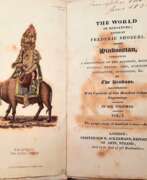

Frederic Shoberl or Frederick Schoberl was a British journalist, editor, translator, writer and illustrator.
Along with publisher Henry Colburn, Schoberl was the creator and co-owner of the New Monthly Magazine, which began publication on February 1, 1814. He acted as editor for a time, publishing original articles and reviews. Frederick Schoberl worked closely with publisher Rudolf Ackerman (1764-1834) for a long time, editing his Vault of Art from March 1809 to December 1828. He also kept Ackerman's English yearbook, Nezabudka, from 1822 to 1834, and worked on many other publications.
In addition to his editorial work, Frederick Schoberl produced excellent illustrations, for example for the book The World in Miniature: Hindustan, which was published in London by Ackerman in the 1820s.
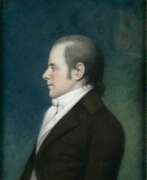

Elihu Hubbard Smith is an American author, writer, and physician.
Smith graduated from Yale College as early as age 11 with a liberal arts education, followed by a medical degree. He worked at New York Hospital and published historical articles on plague and plague fevers.
Elihu Smith was a very active writer: he was a member of the Hartford Witters, wrote the first American comic opera "Edwin and Angelina" (1796), was the editor of the first book anthology of American poetry ("American Poems, Selected and Original," 1793) and the first national American medical journal ("Medical Repository"), and corresponded extensively with many writers and writers of his time.
Smith died at age 27 of yellow fever, which he contracted while treating patients during an outbreak in New York City.
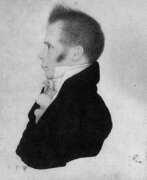

George Watterston is an American politician, author and journalist.
He graduated from the Charlotte Hall Military Academy with a law degree. But, apparently, he soon became so disappointed in the profession that he began to write poetry and prose, in which he portrayed lawyers in a very unsightly form. His first novel "The Lawyer, or The Man as he ought not to be" Watterston published in 1808. This poignant novel is ostensibly a confession of a corrupt lawyer and seducer in the spirit of Stephen Burroughs' Memoirs of Stephen Burroughs. Watterston's ironic take on the didactic novel straddles the line between Charles Brockden Brown's gothic thrillers and dark comedy. He also wrote the novel Glencarne or the Disappointments of Youth (1810), the play Child of Sentiment (1809), and the poem Scenes of Youth (1813), among others.
After the end of the War of 1812, President James Madison appointed Watterston as Librarian of Congress, the third person to hold the position and the first to be solely responsible for it. He held the position from 1815 to 1829.
In 1813, Watterston became editor of the Washington City Gazette. And after his dismissal from Congress, he became editor of the National Journal. He continued a productive literary and journalistic career until his death.
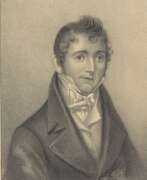

Samuel Woodworth was an American writer and poet, playwright and journalist.
After completing his apprenticeship as a printer, Woodworth traveled to New Haven, Connecticut, and worked for the Connecticut Herald newspaper. During the War of 1812, he edited a weekly newspaper called The War and others. He also wrote several successful operettas.
Samuel Woodworth was a popular poet in the 19th century and is remembered today as the author of the sentimental poem "The Old Oak Bucket".
